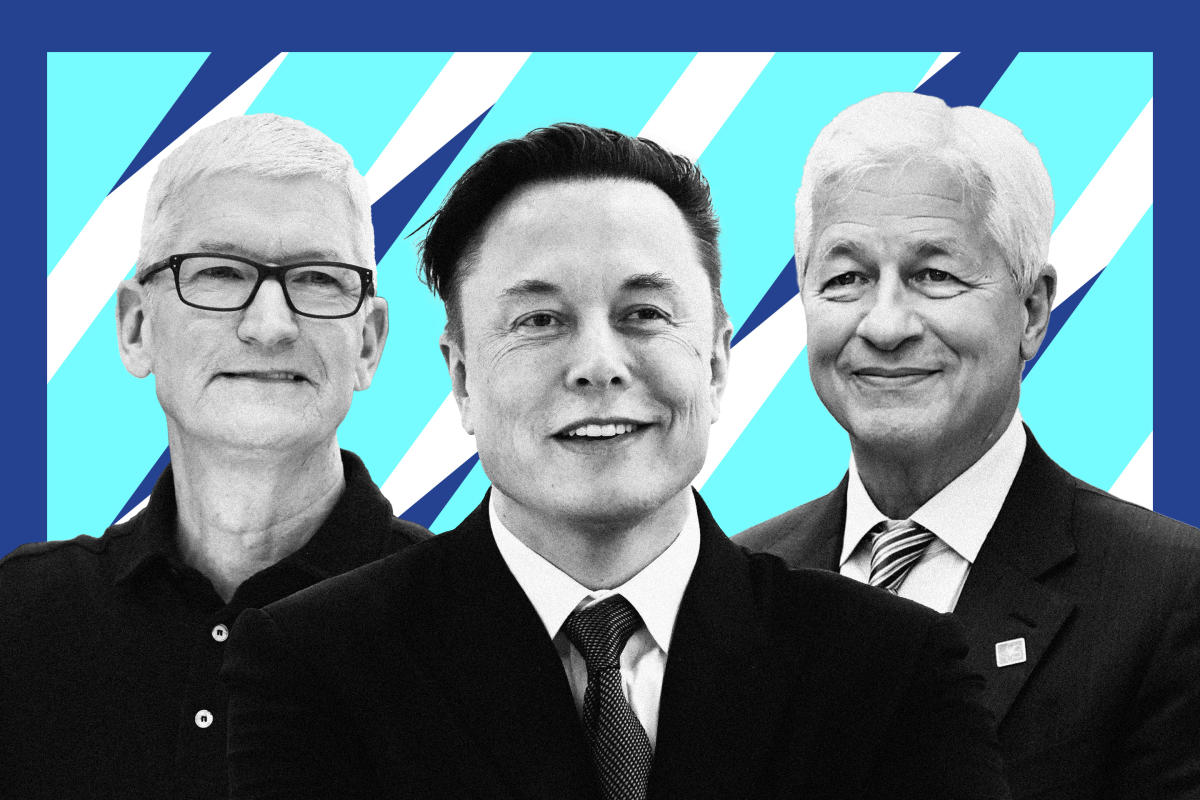The environment edged nearer to studying to stay with COVID-19 in 2022, and as it did, an rising quantity of pandemic limits had been lifted. In numerous countries, that meant returning to the business office for the initial time in two years.
The shift away from federal government remain-at-home mandates led firms to issue no matter if workplace personnel could viably do their work from house on a long term basis. And for lots of bosses, the answer was blindingly distinct: No, they can’t.
With almost 50 % of American CEOs seeking to order their personnel again to the office, a battle before long erupted at numerous corporations in between bosses and employees who either disregarded return-to-get the job done policies or actively rebelled in opposition to them.
In this article, Fortune requires a glance back again at how significant corporations tried—and in some conditions, failed—to reinstate some sort of in-human being functioning this yr.
Elon Musk, [hotlink ignore=”true”]Tesla and Twitter
No record of superior-profile return-to-business office mandates would be finish without having mention of the world’s richest person.
Musk brought about a stir in June when his weighed in—heavily—on whether distant operating need to carry on as economies moved away from draconian COVID constraints.
“Everyone at Tesla is expected to shell out a minimum of 40 several hours in the workplace per 7 days,” he mentioned in an interior memo to Tesla staff members. “If you don’t display up, we will assume you have resigned.”
It was later on documented that the Tesla CEO was finding specific weekly reviews on which team at the electric vehicle business weren’t demonstrating up to operate at the office environment.
However, the return to in-person operating was not precisely smooth at Tesla, with lots of workers exhibiting up to uncover there weren’t adequate desks or parking places for them.
Musk also imposed rigorous return-to-business office mandates at Twitter just after having over the business in October, sending employees at the social media firm an email in November that built obvious he predicted them to be in the business for at the very least 40 hours for every week. Remote get the job done, he informed Twitter personnel, would be banned until he personally approved it himself.
In advance of Musk’s $44 billion acquisition of the organization, Twitter’s plan had been to make it possible for its team to do the job from anywhere “forever.” Musk, who has since trimmed Twitter’s staff by a lot more than 50%, may possibly have experienced an ulterior motive for overturning that plan: in April, he mentioned in personal messages how the transfer could possibly inspire 20% of Twitter’s employees to voluntarily give up.
Apple
Apple CEO Tim Cook’s makes an attempt to get the tech giant’s staff members again in the office environment have not been basic sailing, possibly.
More than the summer time, the business set a September deadline for its company workforce to be in the workplace at minimum 3 days a week, immediately after its previously deadlines were derailed by COVID-19 outbreaks.
In contrast to Tesla and Twitter, which want their staff in the workplace whole time, Apple is aiming for a hybrid product that will see its business workers at headquarters a several moments every single week. In August, Cook dinner despatched staff members a memo in which he touted the positive aspects of “in-human being collaboration” but backed down from before far more rigid proposals to get workers in on the very same preset times every week.
Instead of appeasing his workforce, even so, a group of Apple staff members responded by launching a petition that argued the enterprise “should really encourage, not prohibit, flexible get the job done to create a extra varied and thriving business.”
The policy also prompted a top executive to resign from the organization, stating he believed “strongly” that extra versatility would have been the very best coverage for his workforce.
In an interview with CBS in November, Prepare dinner defended Apple’s force for hybrid get the job done.
“We make solution and you have to hold products,” he explained. “You have to collaborate with a person a different for the reason that we think that one plus one equals a few. So that takes the serendipity of operating into individuals and bouncing thoughts off and caring sufficient to progress your plan through someone else since you know that’ll make it a bigger strategy.”
He extra: “That doesn’t signify we’re going to be in listed here five days. We’re not. If you have been here on a Friday, it would be a ghost town.”
Goldman Sachs
It’s no magic formula that Goldman Sachs’ CEO David Solomon never ever saw distant get the job done as a long term follow at the bank—last year, he referred to doing the job from property as an “aberration” and “not the new usual.”
Even so, his recurring insistence that workers return to the office environment whole-time hadn’t nevertheless resonated with employees when the financial commitment banking huge reopened its U.S. offices in February, with just fifty percent of its team exhibiting up.
By Oct, although, Solomon was telling CNBC that 65% of Goldman’s persons were being in the workplace on any offered working day of the week—not significantly off of its pre-pandemic degree of 75% attendance.
Despite Solomon showing up to be contented with the performance of the return-to-place of work mandate, its staff—particularly younger women—are however cautious of the company’s aggressive force for an stop to remote do the job.
JPMorgan
In his annual letter to shareholders earlier this calendar year, JPMorgan CEO Jamie Dimon stated only 10% of workers had authorization to perform remotely entire-time. All around half of the bank’s employees had been required to be in the office environment just about every day, he advised buyers, when the remaining 40% had been permitted to split their time between dwelling and headquarters.
The enterprise produced headlines in April when it was claimed that it was checking workers’ ID badges to perform out no matter if or not they had been complying with its coverage and heading into the office environment on a standard basis.
Dimon, like Tesla’s Musk and Goldman Sachs’s Solomon, has publicly lamented how remote perform has, in his feeling, suppressed “spontaneous notion generation” as perfectly as leadership and training.
Following two years of remote function, Google mum or dad organization Alphabet named its staff back again to the business in April.
The tech big instructed staff it needed them back on its campuses 3 occasions a week — and it brought out the significant guns in its endeavours to get them on board. On leading of a $9.5 billion investment in new places of work, the company made use of arcade games, cost-free food stuff and a Lizzo live performance to try to entice its employees back.
Nevertheless, roadworks in the very first 7 days again established site visitors chaos for Googlers, though some returned to the business office to discover they did not have a desk.
Google’s transition from distant work to its hybrid design also introduced a controversial fact into enjoy for 17,000 of the company’s employees who had relocated in the course of the pandemic: shell out cuts. Staff members who remaining New York or Mountain Perspective — exactly where staff are paid the most — turned subject matter to fork out cuts of up to 25%, dependent on the place they landed.
L’Oréal
Like Google, natural beauty conglomerate L’Oréal took a bribe-employees-back again approach to establish hybrid function as its norm.
The French cosmetics large gives its personnel a subsidized butler to enable them out with private chores that may well or else go undone soon after they return to the place of work on a section-time basis.
For $5 an hour, L’Oréal workforce can use a concierge to decide up their laundry, acquire their cars and trucks to the gas station or just take care of their pet dogs.
L’Oréal’s workplaces also present perks together with a fitness center, a juice café and an on-web site keep selling splendor products and solutions.
Is it significant to return to the office?
Rich Handler, CEO of expenditure financial institution Jefferies, wrote in an Instagram write-up in June that individuals who clearly show up to the business office will demonstrate their value to bosses who may one working day be selecting who to lay off.
He also insisted that functioning remotely could be the variance between possessing a career and forging a vocation.
Handler isn’t on your own in these assertions, with long run-of-do the job gurus touting the gains of returning to the workplace for millennial and Gen Z employees.
Some bosses are just basic fed up with supplying their staff members regulate in excess of the determination, even so.
In accordance to a analyze from before this year, 77% of managers are eager to impose “severe consequences” on workers who refuse to return to in-particular person working—including firing them or slicing their pay out.
This tale was initially highlighted on Fortune.com
Far more from Fortune:
Persons who skipped their COVID vaccine are at increased risk of visitors incidents
Elon Musk states having booed by Dave Chapelle followers ‘was a initial for me in actual life’ suggesting he’s knowledgeable of setting up backlash
Gen Z and youthful millennials have uncovered a new way to pay for luxurious handbags and watches—living with mother and father
Meghan Markle’s serious sin that the British community just cannot forgive–and Us residents just can’t realize






